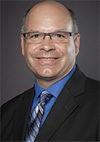These are tough times in the dairy industry, and tough times force us to do things that sometimes won’t happen when times are good. We all have comfort zones, and even if we don’t realize it, we do things to stay within those comfort zones. Sometimes the fruit is at the end of the branch or outside the border of our comfort zone. I would like to propose two questions to get us to wander outside of that comfort zone, and maybe find some fruit that we didn’t even know was there.
Which is more important – family or business?
Tough question, isn’t it? Many people would say that both are important, but if you could only choose one, which one would it be? Both can be important, but only one can be “most important.” Let me explain why I think it is an important question to honestly answer. These are tough times, and all of us in the dairy industry are stretching all our resources to keep our family businesses alive. If our business is “most important,” it is possible to make that a priority rather than the people who we spend most of our days with.
A family business that survives, but at the expense of the people we love, may not be the best outcome. I believe that if our priority is our family, we can have a successful family and a successful business. So consider doing some things to develop some family habits that will not only help us through these tough times, but also set us up for even better families when the financial environment improves – and it will.
If we intentionally set out to make our family a priority, we will become more aware of things we can do daily that can add value and don’t necessarily take a lot of time. Eat together, make some intentional good memories, have some specific communication time that includes focused listening, start a thankfulness board, smile, say thank you, recognize and verbalize positive things others are doing, etc. Strong, successful businesses don’t just happen; they require vision, focus and lots of effort, and so do successful families.
Are you willing to embrace change?
Please notice that I used the word “embrace,” not “accept” or “tolerate.” If we want things to be better in our lives, something must happen, “change.” The question for most of us is not if something needs to change, but what needs to change?
I get it; change is hard. It takes us out of our comfort zones, and we are programmed to desire comfort. But change can be good, and it is likely not as hard, or as painful, as your inner self is leading you to believe. Think about it this way: Everything that is easy for you now was at one time hard – walking, standing, speaking, writing, brushing your teeth, keeping the food on your spoon all the way to your mouth, etc. We can do many different things today because when we were young, we kept at something until we mastered it, even if we failed many times during the process.
I believe that when something isn’t the way we would like it or a mistake has just happened, a question should always be asked: “What can we do differently, so this never happens again?” People sometimes don’t like this question because it makes them think, but that is really what we want to happen.
Asking people to think about how to prevent it from happening again takes the focus away from negative things like faultfinding, anger and frustration. It instead initiates positive momentum while looking for things to “change,” while expecting a better future by creating a different outcome. Some people who adopt this process run with the first idea that comes to them, but there may be a better one. Challenge yourself and your team to come up with at least three to five ideas, and then pick the best one to move forward with.
Making this process a part of life can bring rapid improvement to all areas. It can even be asked in a slightly different way to just bring about improvement even when there is no mistake or failure. When a person or team puts this type of thinking into action, they become problem-solvers. Creating a culture of problem-solving in a family, or business, is extremely valuable. It can be a life-changing process during tough times, but is just as beautiful and rewarding when times are good.
Our past and present has already happened, and there is nothing that we can do about it, other than learn from it. Our future has not yet been written, and what we think, believe and act upon will have a big part in what it will look like. ![]()
Hank Wagner is a dairy farmer in Oconto Falls, Wisconsin.




